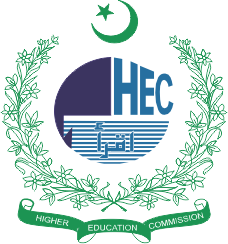Impact of Parental Involvement on Students’ Motivation, Social Behaviour And Academic Performance
DOI:
https://doi.org/10.55737/trt/SR25.136Keywords:
Parental Involvement, Academic Performance, Student Motivation, Social Behaviour, Secondary EducationAbstract
The research article addresses the idea of how parental involvement would encourage social behavior and performance of learners within the District of Dera Ghazi Khan and secondary schools. The validated five-point Likert scale questionnaire and a descriptive research method were applied to them to gather the data on a stratified random sample (397 tenth-grade students in public schools). The reliability of the tools was ensured using the Cronbach alpha analysis and a pilot study. Both descriptive and inferential statistics and regression were used to test the null hypotheses. The results will help in explaining the specific relationships that are being looked at that can be useful to teachers, parents, and policymakers in creating further successful strategies that will lead to improved student outcomes through better interaction between parents.
References
Abbas, Z., Shakoor, Z., & Fatima, K. (2023). Role of Parental Involvement on Elementary Students' Academic Success and Well-Being. Journal of Asian Development Studies, 12(4), 763-770. https://poverty.com.pk/index.php/Journal/article/view/250
Barajas-Gonzalez, B. (2022). School Leader’s Impact on Family Engagement. [Doctoral dissertation]. San Diego State University].
Bayer, J., Bydzovská, H., Géryk, J., Obsivac, T., & Popelinsky, L. (2012). Predicting Drop-Out from Social Behaviour of Students. International Educational Data Mining Society.
Boveda, M., Ford, K. S., Frankenberg, E., & López, F. (2023). Editorial Vision 2022–2025. Review of Educational Research, 93(5), 635-640. https://doi.org/10.3102/00346543231170179
Elliot, A. J., & Murayama, K. (2008). On the measurement of achievement goals: critique, illustration, and application. Journal of Educational Psychology, 100(3), 613. https://psycnet.apa.org/buy/2008-10939-009
Gearin, B., Fien, H., & Nelson, N. J. (2018). Mind wandering: A potentially generative idea for understanding the socioeconomic status academic achievement gap. Translational Issues in Psychological Science, 4(2), 138. https://psycnet.apa.org/buy/2018-29453-003
Gonzalez-DeHass, A. R., Willems, P. P., & Holbein, M. F. D. (2005). Examining the relationship between parental involvement and student motivation. Educational psychology review, 17(2), 99-123. https://doi.org/10.1007/s10648-005-3949-7
Hussar, W. J., & Bailey, T. M. (2014). Projections of Education Statistics to 2022. NCES 2014-051. National Center for Education Statistics.
Hussar, W. J., & Bailey, T. M. (2016). Projections of Education Statistics to 2023. NCES 2015-073. National Center for Education Statistics.
Jayanthi, S. V., Balakrishnan, S., Ching, A. L. S., Latiff, N. A. A., & Nasirudeen, A. M. A. (2014). Factors contributing to the academic performance of students in a tertiary institution in Singapore. American Journal of Educational Research, 2(9), 752-758. http://dx.doi.org/10.12691/education-2-9-8
Jeynes, W. H. (2015). A meta-analysis: The relationship between father involvement and student academic achievement. Urban Education, 50(4), 387-423. https://doi.org/10.1177/0042085914525789
Kumar, R., & DeCuir-Gunby, J. (2023). What is the role of race in educational psychology? A review of research in the Educational Psychologist. Educational Psychologist, 58(1), 1-17. https://doi.org/10.1080/00461520.2022.2137804
Li, Q., Cao, Z., & Zhao, D. (2023). Home-based parental involvement and early adolescents’ socio-emotional adjustment at middle school in China: A longitudinal exploration of mediating mechanisms. Journal of Child and Family Studies, 32(7), 2153-2163. https://doi.org/10.1007/s10826-023-02594-0
Li, R., Shen, Y., Meng, Z., & Hu, Y. (2025). Longitudinal relationships among child school engagement, parental monitoring, and child prosocial behavior: A child-parent synergistic mechanism. Journal of Youth and Adolescence, 54(1), 121-132. https://doi.org/10.1007/s10964-024-02043-1
Linnenbrink-Garcia, L., Patall, E. A., & Pekrun, R. (2016). Adaptive motivation and emotion in education: Research and principles for instructional design. Policy Insights from the Behavioral and Brain Sciences, 3(2), 228-236. https://doi.org/10.1177/2372732216644450
López, F. (2022). Can educational psychology be harnessed to make changes for the greater good?. Educational Psychologist, 57(2), 114-130. https://doi.org/10.1080/00461520.2022.2052293
Özyıldırım, G. (2024). Does parental involvement affect student academic motivation? A meta-analysis. Current Psychology, 43(36), 29235-29246. https://doi.org/10.1007/s12144-024-06568-3
Pinquart, M. (2017). Associations of parenting dimensions and styles with externalizing problems of children and adolescents: An updated meta-analysis. Developmental psychology, 53(5), 873. https://psycnet.apa.org/buy/2017-18450-004
Simmon, L. M. (2024). Social-Emotional Learning and Teachers’ Perceptions Using the Collaborative for Academic, Social, and Emotional Learning Framework (Doctoral dissertation, Walden University).
Twenge, J. M., & Campbell, W. K. (2018). Associations between screen time and lower psychological well-being among children and adolescents: Evidence from a population-based study. Preventive medicine reports, 12, 271-283. https://doi.org/10.1016/j.pmedr.2018.10.003
Vander Ark, T., Liebtag, E., & McClennen, N. (2020). The power of place: Authentic learning through place-based education. ASCD.
Wang, M. T., & Sheikh‐Khalil, S. (2014). Does parental involvement matter for student achievement and mental health in high school?. Child development, 85(2), 610-625. https://doi.org/10.1111/cdev.12153
Zimmerman, B. J. (2013). From cognitive modeling to self-regulation: A social cognitive career path. Educational psychologist, 48(3), 135-147. https://doi.org/10.1080/00461520.2013.794676
Zimmerman, B. J., & Schunk, D. H. (2014). Albert Bandura: The scholar and his contributions to educational psychology. In Educational Psychology (pp. 431-458). Routledge.
Downloads
Published
Issue
Section
License
Copyright (c) 2025 Bushra Salahuddin, Rakhshanda Hassan, Syed Ahmad Raza Shah Gillani, Shabnam Razaq Khan, Muhammad Mujtaba Haider

This work is licensed under a Creative Commons Attribution-NonCommercial 4.0 International License.





